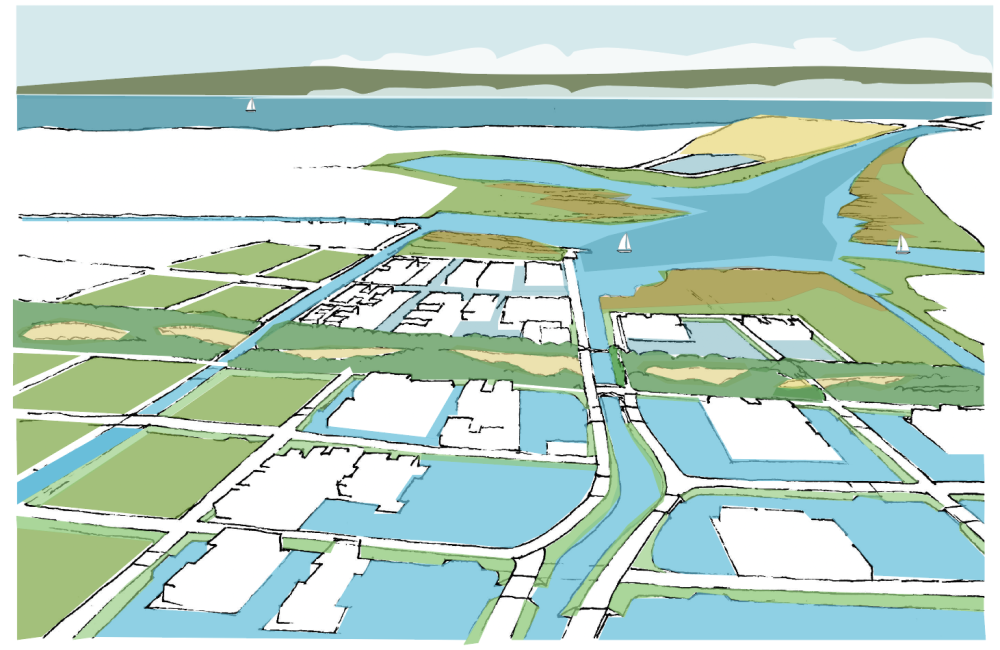Kristina Hill | UC Berkeley

This lecture will present examples of how conventional engineering strategies can fail in coastal cities, based on new insights from groundwater hydrology, and offer an alternative vision using a more comprehensive understanding of how water interacts with landforms. Designers can have a greater influence on state policies and city projects that address adaptation to flooding by being radically pragmatic about hydrology. Up to now, designers and engineers have persuaded decision makers with an incremental approach. But as the rate of sea level rise and groundwater-driven flooding accelerates, designers from the discipline of landscape architecture have new opportunities to provide leadership. Insights about water and landforms informed the first cities, and can be embraced once again in our current era as coastal cities face transformational challenges.
ABOUT KRISTINA HILL
Kristina Hill develops research on sea level rise and design strategies for adaptation to coastal flooding. Her work identifies synergies between infrastructure investments, biodiversity and environmental justice. Her most recent research paper in the AGU journal Earth’s Future identified contaminated sites in the San Francisco Bay Area that are exposed to rising groundwater near the coast. Hill has contributed to adaptation plans for a diverse group of US cities, federal agencies, and the Rockefeller Foundation; she lectures internationally about her research, and her ideas have been featured in US and international media (PBS’s Sinking Cities, the podcast Hidden Brain, and the Guardian). Her PhD is from Harvard University, and she is Research Director of the Institute for Urban and Regional Development at UC Berkeley.

